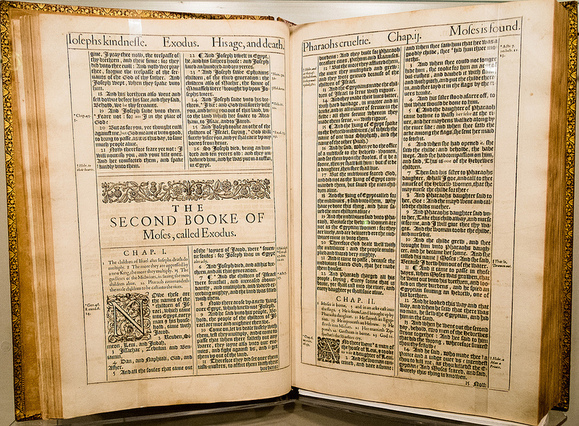Still, I don't think the Lord has been deliberately cryptic about anything, do you? I believe that He in fact inspired a book that tells us everything we need to know to live peaceful, fruitful and godly lives here on earth and to spend all eternity with Him in His heaven.
As a writer myself, I consider this a very good thing. Doesn't excellent writing explain and clarify, rather than confuse?
Apparently not.
I recently read an excellent book on writing for publication -- The First Five Pages by Noah Lukeman (Fireside, 2000). Honestly, it's a great book, but it does contain one disturbing section -- a section in which the author praises literature that remains "endlessly fascinating" because "Twenty students can walk away from a seemingly straightforward text with twenty different conclusions."
Lukeman explains: "What all this shows is that books are as much about what readers bring to them; no matter how factual the text, there is no absolute reality -- it is ultimately subjective. Great books, in order to remain exciting time and again, reflect an awareness of this and leave open this room for interpretation." (p. 120-121)
I beg to differ, at least when it comes to the Bible. What could possibly be more exciting than learning about our Creator, His will, His works, His plans for eternity? What could possibly be more endlessly fascinating than the story of a God who took the fall for our transgressions, suffering and dying to pay the just penalty for those transgressions so that our eternities can be spent in heaven with Him?
In point of fact, the Bible doesn't remain exciting by inviting alternative interpretations. It remains exciting by inviting us to dig into every line and meditate upon every word; by expecting us to amass knowledge of the divine; by helping us develop the wisdom to apply its truths to our own lives, and the understanding of why God's direction is always, invariably, inevitably best for us.
Certainly, it's to our advantage to consult experts in various disciplines to learn more about what its authors wanted us to know. Take, for example, the 23rd Psalm. Lately I've been thinking a lot about a wonderful book by the late Phillip Keller, A Shepherd Looks at Psalm 23. A former shepherd himself, Keller provides fantastic insights into shepherds and their sheep -- including what it means to have one's head anointed with oil, and why that's such a wonderful thing. My life is so much richer today for having incorporated these insights into my reading of this most beautiful of King David's psalms.
I am convinced that one could spend a lifetime studying just one chapter of the Bible, and never reach the end of what its author, inspired by the Holy Spirit, intended to convey.
In contrast, it's when we treat the word of God as ambiguous, and insist on adding our own spin to it, that we get in trouble.
Consider the simple statement of fact provided in John 3:16, which tells us who can go to heaven, on what basis, and why: "For God so loved the world that He gave His only begotten Son, that whoever believes in Him should not perish but have everlasting life."
What's ambiguous about that verse? Nothing. What's subject to interpretation? Nada. And yet for centuries scholars have been building theological empires for themselves by presenting it as equivocal, by re-interpreting or spiritualizing it, by adding to or taking away from its plain words.
And that's just one example of dozens I could cite -- many of them causing eternal harm to those who buy into such twists and turns.
The bottom line: If it's ambiguity you seek, pick up a book by Falkner or Camus or Joyce, and leave the Bible alone. Because Scripture is truth. And truth is not open to interpretation.

 RSS Feed
RSS Feed